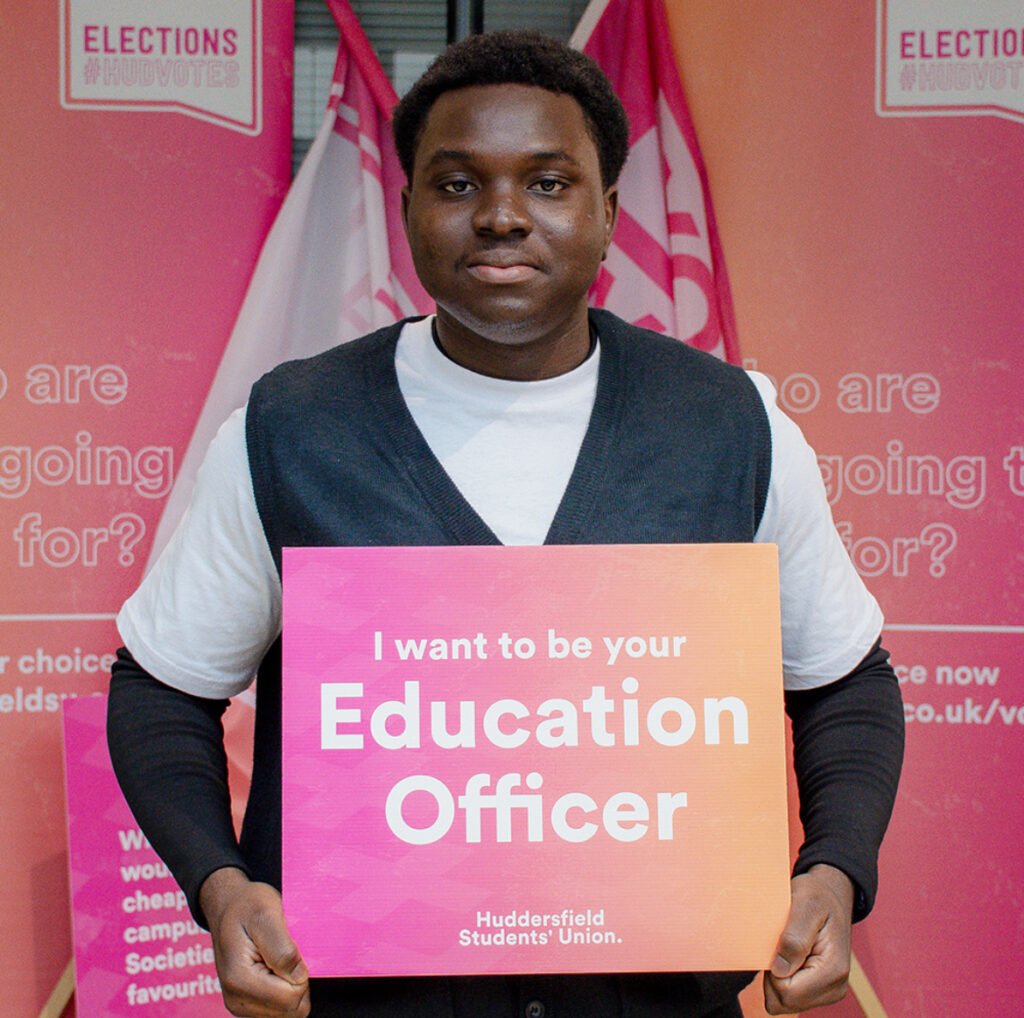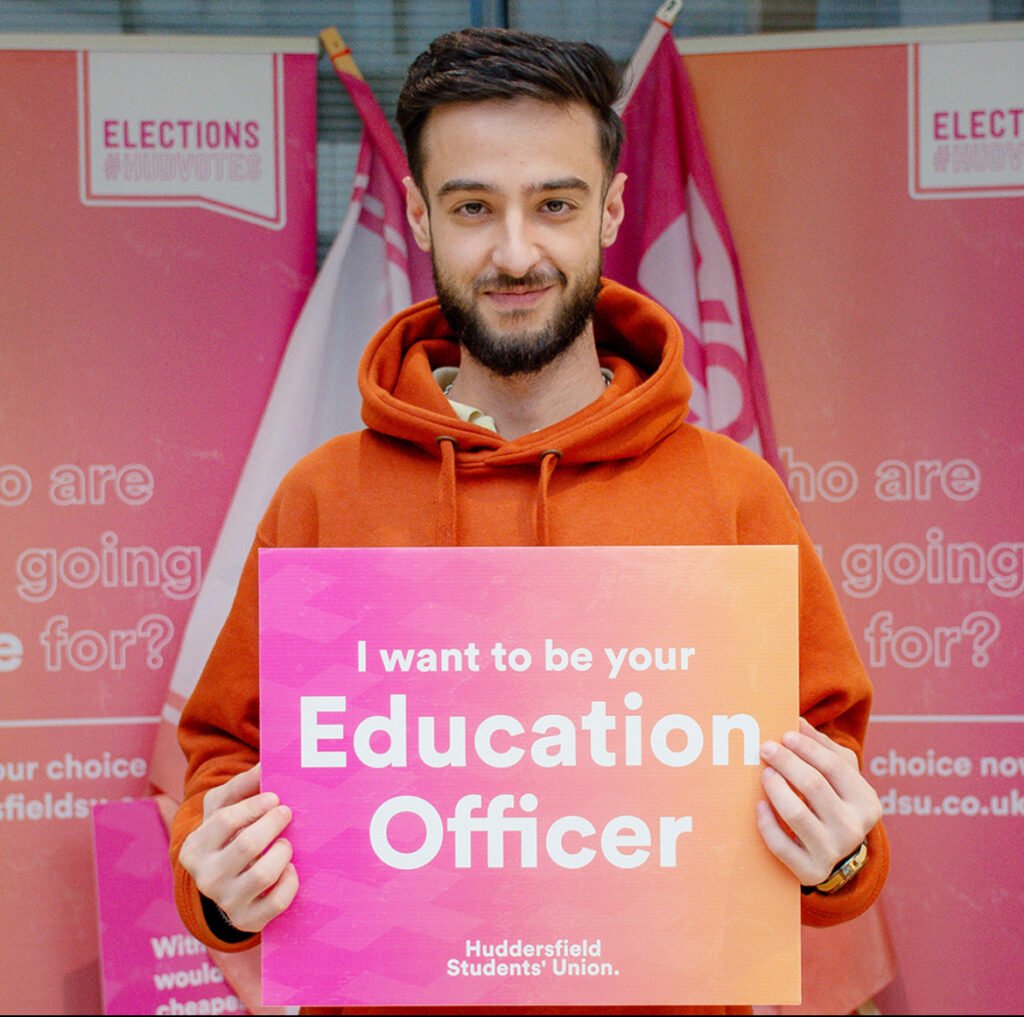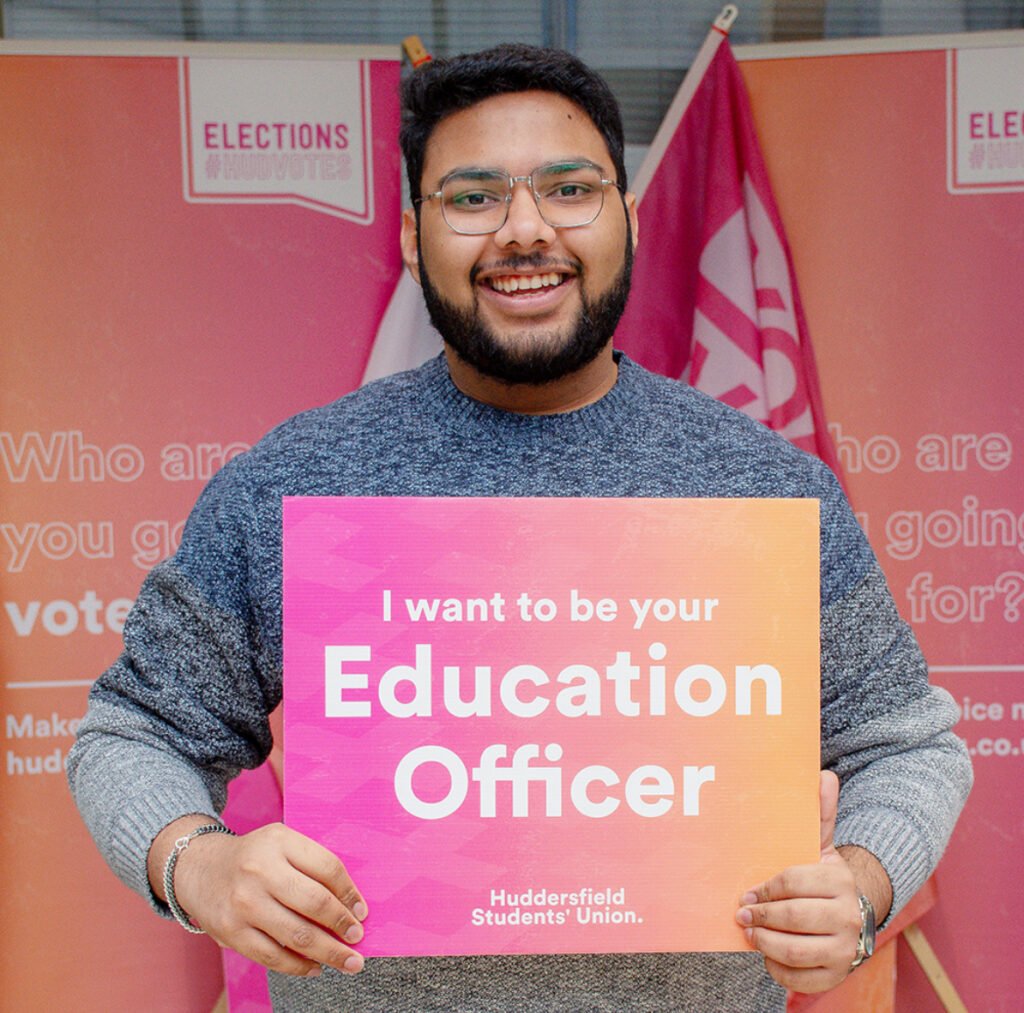
Oluwapelumi Philips
Can you introduce yourself by telling us your name and the position you are running for?
Hi, my name is Philips and I’m running for Education Officer.
What are your hobbies and interests outside of the university?
I like to do everything! I do everything from badminton to rugby, to graphic design, and public speaking.
Why have you decided to run for your chosen role?
I decided to run for Education because it’s what I’m good at. I’ve noticed that I can do all these different hobbies and still maintain a very good academic track record. If I can do this, why not teach other people to do that as well? Also, my brother is coming here next year, so I want to make the education system better for him too.
What are your top three policies?
My first policy is providing international student support. Adjusting to new country can be challenging, especially learning a new language. What I want to do is make orientations and specialised academic tutoring and mentorship programs for international students.
My second policy is about holistic student development. University isn’t just about getting good grades, we’re all in university to get a job. That’s the simple truth. You + University = job. Hopefully at the end of your education, you will get a job. But then the reality is, good grades aren’t what gets that’s not what gets your job. You need other skills, personal, team building, teamwork, and public speaking skills. My goal is to boost student employability by pushing for more skill-building workshops, networking opportunities and career development initiatives.
My third policy is providing support for commuting students. For example, I have coursemates who wished timetabling was different. Why can’t we have a hybrid education system? Online attendance should be an option and should still count. Commuting can be frustrating, and I want to restructure timetables so that classes are grouped together. You don’t have a one-hour class on a Friday afternoon when it could be grouped with your other lessons on Monday for example.
Why do you think these policies are important for students?
Because it’s realistic. It helps them. Restructuring timetables will help commuter students. With the Student Development policy, everyone after graduation will want to get a job. If you have all the skills necessary, almost everything in life is an equation. You + skills = jobs, or at least, increases your chances of getting a job.
Do you have a message for the students reading this?
I could plead with you to vote for me, but I’d prefer if you just looked at the policies and see how they help you as an individual. Vote for me, bro.

Irfan Rashid Rather
Please can you introduce yourself by telling us your name and the position you are running for?
My name is Irfan, I’m re-running for the Education Officer post.
What are your hobbies and interests outside of the university?
I mainly go out and play football with my friends on the weekend, I don’t watch it, I just play which is funny. Apart from that I like to explore new topics, because I was a student until this summer, so I was mainly in my studies, I would just read articles.
Why have you decided to run for your chosen role?
Yeah, obviously because I love it. Apart from that, I’ve been working on certain projects this year which I think need more time. So I want to continue those projects in my next year because if I don’t get elected, I don’t know if the next person is going to work on them. This is some sort of legacy that I want to leave behind, because I’m really into student representation and I really want things to be done. After being in office for a year, I’ve realised what issues are achievable. I could’ve gone for president (or other positions) if I wanted to, but the thing is I knew these things, these projects, could be done by an education officer.
What are your top three policies?
So the first issue I want to work on is timetabling, as an officer in this role, and before this, I was an academic rep, I was a student ambassador and every time I spoke to students this was a major issue. I wanted to fix it, and we did some student panels and collected feedback around it. We met different timetabling managers and what I want to work on is a very flexible timetable as I know every student has different needs. We’ve got students who commute, students who are disabled, students with part time jobs, students who live in halls so it’s easy for them to commute. So how do we make sure that this timetable fits everybody? So that’s my first objective.
The second one is restructuring the academic representation structure, so currently you have an academic rep, and they take feedback and give it to school reps. Then school reps feed that back. But the problem with that is, is the right person representing the right cohort? How do we make sure of that? What does a perfect academic rep look like? So we explored this this year, we did a workshop called pirates which had a huge focus on equity, so we want to make sure our academic reps have all those elements such as sympathy and equity. This comes in the same point about how every student has a different need. If a student is disabled, their needs will be different from that of a student who is able, but then they have some other difficulties. So how does that rep take feedback from each, it’s not only about listening right, it’s about acting on it. So, I want to make sure the feedback mechanisms are better.
And another issue that I want to solve is PGR representation. They’re expected to teach, they’re expected to learn, so they’re students and teachers. Every university you go to, PGRs have a separate space for them. Like they have separate buildings dedicated to them, we don’t necessarily have that specific place. What we have is specific rooms in different schools/buildings. The problem with that being buildings mostly shut at 7/8 pm. What happens after that? Buildings are shut on weekends, what happens then? Because it’s a researcher we’re talking about, they have to plan their class, plan their research, and meet their supervisor. So, they need a separate representation. So, what I’m pushing for is a separate PGR representation in a way that they’ve been included with the university, and they’re not alienated, because that’s what’s happening right now.
Why do you think these policies are important for students?
Again, as I said, different students have different needs. Being an officer allowed me to get exposed to more students and I had the opportunity to speak to more students on different occasions and that’s what made me realise that I need to focus on these, because in my manifesto, besides the three points that I mentioned, is AI. So, AI is a project that I’m working on this year as well, and we’re going to continue that next year. So, if all of these issues are affecting students negatively and this is something that students have said to me, these are testimonials, and not just me, if you ask any rep these are the problems. And if I get more time, if I really get elected, these are things that I will be able to achieve in a year as I don’t wanna give promises like I’m gonna do this and that when I only have one year in office.
Do you have a message for the students reading this?
Make sure you register, and vote. I would of course say vote for me, but even if not for me your voice matters. So that’s what I say. Your voice matters, so go out, vote, speak to candidates.

Shufan Javaid
Please can you introduce yourself by telling us your name and the position you are running for?
Hi, I’m Shufan, and I’m running for Education Officer this year.
What are your hobbies and interests outside of the university?
Outside of university, I play some musical instruments, and I also like socialising with my friends and flatmates. I also joined a church, so I also go to some youth groups too!
Why have you decided to run for your chosen role?
It’s something I’ve wanted to do since first year, butI wanted to make myself known to what happens in the university, and also get to know more people, so I joined the students union. I’ve been working as an academic rep for two years, and I’ve also been working in the SU shop, allowing me to communicate with a lot of students daily. All these roles have basically provided me with a lot of insight into student life at the University, and at a grassroots level I feel like I’ve actually heard and tried to answer most of the concerns that have been genuine. This is what encouraged me to run for Education this year.
What are your top three policies?
My top three policies are
Introducing Hybrid education to the university. This proposes to have one or more classes in a week where students don’t have to commute into university – especially for the sake of a one hour class. Instead they can take the class online, meaning that attendance will be increased especially for commuting students. It gives flexibility to the timetable, and may also make university more affordable.
Another one of my policies is about digitising feedback. Its already been done in the computing engineering school, but not the whole university – and it’s already been really successful there. It’s not to cut out academic reps, but it makes it easier for students to communicate their concerns, without having to find the academic reps personally. It also means that you can share concerns anonymously, and is a faster mean of communicating them with the university, or your department.
Lastly, I want to focus on collaboration between societies and academics – such as having more events which involve the two. There have been some events like this already, however they lack in numbers – and having both things in the same event may give a greater opportunity to socialise and experience their interests together.
Why do you think your policies are important for students?
Making sure that commuting students are able to attend lectures easily is incredibly important – especially as public transport is sometimes unreliable, and can make people late or cause them to miss classes. On top of this, communicating feedback faster is also important, as at the moment it can take three months for issues to be resolved. Society collaborations may cause greater attendance for both socials and collaboration with academics.
Do you have a message for students?
If there are smart solutions for everything, there will definitely be quick resolutions. It’s something i’ve been fighting for, and that’s my motto as well.
